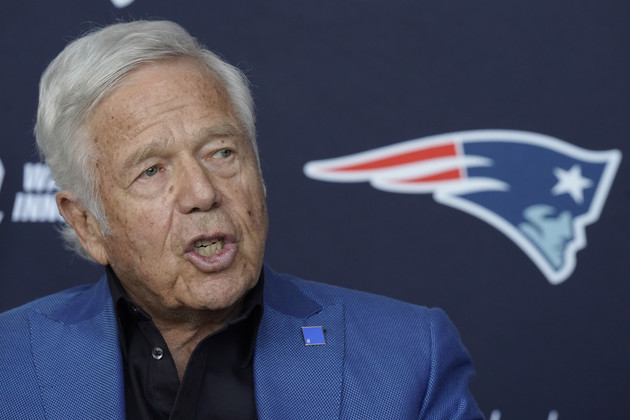
New England Patriots owner Robert Kraft recently made headlines by announcing his decision to withdraw support for Columbia University, citing concerns over the treatment of Jewish students and faculty during pro-Palestinian protests on campus.
Kraft, a former student and major donor to Columbia, expressed deep sadness at what he described as “virulent hate” growing on the campus and throughout the country. He emphasized that he no longer has confidence in Columbia’s ability to protect its students and staff and stated that he is uncomfortable supporting the university until corrective action is taken.
The announcement adds to mounting pressure on Columbia University, with calls for its president to resign emanating from members of Congress. Kraft’s involvement in the university includes kickstarting funding for the Kraft Center for Jewish Student Life with a $3 million donation in 2000, alongside subsequent contributions totaling millions of dollars.
In a subsequent CNN interview, Kraft reiterated his support for the Kraft Center, highlighting it as a “haven of safety” amid the turmoil on campus. However, he expressed concern over the situation, which he described as having escalated “too far, for months.”
Kraft also drew parallels between the current protests over the Israel-Hamas conflict and his own experiences during the Vietnam War era, emphasizing the importance of accountability in addressing campus tensions.
The catalyst for Kraft’s decision appears to have been the revocation of campus access for Shai Davidai, an Israeli professor attempting to join a counter-protest. This move further fueled tensions on campus, which have been escalating over the past week.
The situation at Columbia University reflects broader tensions surrounding the Israel-Palestine conflict, with similar controversies emerging at other universities. Kraft’s withdrawal of support echoes similar actions by prominent donors at other institutions entangled in similar disputes.
As the debate continues to unfold, the repercussions of Kraft’s decision and the broader implications for campus discourse and donor relations remain to be seen.
This development underscores the complex intersection of politics, philanthropy, and campus dynamics, highlighting the challenges universities face in navigating contentious issues while upholding principles of inclusivity and academic freedom.
COMMENTS